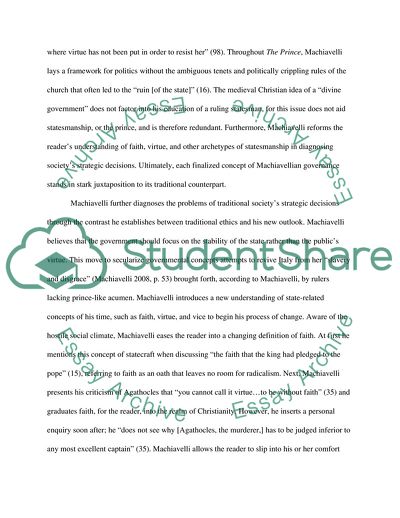Cite this document
(Machiavelli: The Prince Book Report/Review Example | Topics and Well Written Essays - 1750 words, n.d.)
Machiavelli: The Prince Book Report/Review Example | Topics and Well Written Essays - 1750 words. Retrieved from https://studentshare.org/politics/1785709-book-review-machiavelli-n-the-prince-oup-oxford-2008
Machiavelli: The Prince Book Report/Review Example | Topics and Well Written Essays - 1750 words. Retrieved from https://studentshare.org/politics/1785709-book-review-machiavelli-n-the-prince-oup-oxford-2008
(Machiavelli: The Prince Book Report/Review Example | Topics and Well Written Essays - 1750 Words)
Machiavelli: The Prince Book Report/Review Example | Topics and Well Written Essays - 1750 Words. https://studentshare.org/politics/1785709-book-review-machiavelli-n-the-prince-oup-oxford-2008.
Machiavelli: The Prince Book Report/Review Example | Topics and Well Written Essays - 1750 Words. https://studentshare.org/politics/1785709-book-review-machiavelli-n-the-prince-oup-oxford-2008.
“Machiavelli: The Prince Book Report/Review Example | Topics and Well Written Essays - 1750 Words”. https://studentshare.org/politics/1785709-book-review-machiavelli-n-the-prince-oup-oxford-2008.


